181 CEOs, members of the Business Roundtable (BRT), representing the largest U.S. companies released their new “Statement on the Purpose of a Corporation” in August. The document aims at redefining the purpose of corporations to promote “An Economy That Serves All Americans”, across 5 principles. This document provides interesting insight to understand common denominator expected to drive the way large US companies are updating – or will update – their corporate approaches to sustainability. What is this Statement telling to stakeholders around the world about sustainable business “made in USA” today?
What’s BRT?
Business Roundtable is a group of nearly 200 CEOs of companies headquartered in the US. They have been promoting business-friendly policies in the US since 1978. Now, BRT membership is attempting to redefine the mission of corporations. No longer will they only prioritize the value they create for their shareholders. Instead, they have outlined five commitments to “all” of their stakeholders to show a new, more inclusive and sustainable face of business.
BRT is no doubt influencial. Every brand and large US company showing leadership on sustainability for decades is a BRT member. So what BRT can commit to do on behalf of its membership can somewhat define a lowest common denominator of sustainability principles expected to be found across the strategic and operational business decisions of any sizeable company headquartered in the US. There are of course plenty of leadership examples “made in USA” showing how US leaders can be visionary, bold and provide fascinating transformative solutions shaping the 21st century economy, but that’s not the aim of this Statement.
For companies and stakeholders operating from outside of the US, reading and understanding this document is nevertheless useful to get a sense on what’s increasingly consensual, and to be taken for granted, when engaging or working with US companies. And by contrast, what’s missing in this Statement is interesting to get a sense on what is not that consensual among US CEO leadership community.
So here’s a review of what’s great to see and demonstrate interesting leadership from US companies through these commitments. And what sounds very dated and not aligned with what’s expected from global business today to address the societal challenges of building more inclusive business in an environmentally constrained world.
What’s Exciting With This Statement on the Purpose of a Corporation Made in USA?
This updated statement moves away from shareholder primacy, including commitment to all stakeholders. This statement received positive coverage from social medias, promoting articles like this one by Washington Post, or this one by Wall Street Journal. At first sight, the reading of the commitment looks somewhat similar to BlackRock’s CEO 2019 annual letter on many aspects.
The following is therefore really great and exciting to read:
1. Recognize the Role of Business in the Society
The main point of the document reiterates the role of business in the society: Businesses play a vital role in the economy by creating jobs, fostering innovation and providing essential goods and services. This point is critical, and very connected with Larry Fink’s Annual Letter connecting the dots between the way a corporation understands its purpose and its impact on the needs of its stakeholders, and the way this purpose driven approach can contribute to generate profits for the company.
2. Remain Customer Centric
A strong commitment to remain closely focused on customer needs and satisfaction is essential. Sustainable Business is about doing business successfully. Working hard and investing massively on issues ranging from protecting the environment, respecting human rights to promoting inclusive growth must remain driven by a strong business case. And a strong business case for any corporation is sooner or later related to customer satisfaction, retention and value generated through effective responses to customer needs.
3. Generate Long Term Value for Shareholder
The BRT commitment also makes strong connections between purpose, and the way good purpose can drive long-term profitability for shareholders. The way to get there is not explicit, which is doubtless a weak aspect of the document. A clear mention to climate is missing. That said, at a time when rating agencies like Moody’s are strengthening capacities to assess climate as well as ESG risks, leading US corporations recognize importance of transparency and effective engagement with shareholders in the document. One can only assume they will have to discuss the critical environmental or social issues impacting valuation of assets. In other words, even if the Statement is not making clear mention of climate or human rights risks, it is hard to believe that engagement with investors and other stakeholders will not include such topics for engagement to demonstrate transparency and effectiveness one way or another…
What Could Have Been Expected to Enhance Trust in Business Through This BRT Statement?
The Statement itself claims to be drafted on behalf of 181 CEOs who commit to lead their companies for the benefit of all stakeholders – customers, employees, suppliers, communities and shareholders. So that’s certainly interesting to see what’s missing and disappointing to not read in the document to likely enhance trust of these stakeholders.
We have worked extensively with US companies. A decade ago, BRT already issued a dense report including key sustainable commitments of its membership, as well as pioneering US initiatives like Climate Resolve. We’ve been flipping through these documents extensively in the past. So we expected to see more coming from a new Statement… At a time when frustration generated with years of stagnant wages across OECD economies (and notably in the US), the effect of technology on jobs, and uncertainty about the future given climate and environmental risks are all at stake and generating uncertainties for business, one could have expected more visionary commitment coming from US business leadership in response. A way to build trust with stakeholders demonstrating good understanding of what’s at stake across today’s societies in the US, working with business partners and servicing clients around the Globe.
We are in urgent need of transformative, disruptive change at a global level to address climate and inequality challenges, in context of profound digital revolution. We need to accelerate building more resilient and more inclusive societies. Business has a role to play. And corporations are expected to make commitments and investments going way above what they were already doing a decade ago.
So here are three aspects we can only encourage companies to address individually, building upon the starting points agreed across this Statement.
1. Anchor Purpose of a Corporation With Impact on Global Goals
Global Goals provide a clear agenda for the global community for the decade to come. BRT is primarily targeting American people, but is also interested in positive contribution vis-à-vis stakeholders around global operations: customers, employees, suppliers, communities. All these stakeholder groups want sustainable cities, decent jobs, more gender equality, quality education, and so on. Business purpose becomes pertinent when well aligned with what stakeholders are expecting from companies. Direct connection to the Global Goals is an effective way to gain in alignment and impact. US leading companies can therefore be successful defining purpose only if clearly committed to innovate, and grow business with clear and strong impact on selected Global Goals.
2. Create Value and Client Satisfaction Delivering Products and Services Respecting Human Rights and Environmental Constraints
Trust in business is closely connected to its overall poor performance encouraging consumers to adopt sustainable consumption behaviors. Too many corporations have also been all too often caught by stakeholders for poor business practices infringing human rights of customers, suppliers and communities. Generic 1990’s commitments to “respect the people in our communities and protect the environment by embracing sustainable practices across our businesses” does not build trust with stakeholders any longer in 2019. Instead, companies and this BRT statement would have enhanced trust recognizing clearly and strongly that the world being in deep digital, social and environmental transformations, US companies would expect to rejuvenate the way they intend to serve and satisfy clients ensuring alignment of their products and services with what environmental constraints can accept, what basic human rights can allow, managing digital revolution with responsibility.
3. Cooperate with Stakeholders to be a Force for Good and Influence US and Global Policies and Commitments to Adapt Economies to the Triple Digital, Social and Environmental Revolutions Underway
The Edelman Trust Barometer has been showing similar trends and poor trust in business for 19 years. At a time when BRT is refreshing statement in the way US companies can lead with purpose, we could have openly dreamed to expect corporations to align lobbying practices with what being a Force for Good could expect, and put lobbying resources to promote better tax incentives, better regulations, more penalties encouraging companies to respect human rights and accelerate significantly investment and delivery to adapt their operations, practices and products to an environmentally contrained world. This is of course very challenging, and not exclusively in the current US political context. We don’t think companies in Europe or Japan are eager to make such commitment through business organizations similar to BRT. But at a time when inequalities or environmental constraints generate high uncertainties for business, focusing lobbying resources to build more inclusive and climate resilient markets is a way to promote business friendly policies. That’s 21st century leadership.
BRT Statement Demonstrates Insufficient Leadership to Adapt Business to the Triple Digital, Social and Environmental Revolutions Underway
Without these additions, the statement is weak and does not demonstrate good leadership of what sustainable business “made in the USA” can mean for customers, business partners, communities and shareholders around the world. It is not that new nor bold, and instead reinforces poor trust in corporations as well as insufficient capacity to adapt to a global society in deep need for strong impact from business to address the risks and opportunities generated by the triple digital, social and environmental revolutions underway.
Luckily, there are many individual examples of CEO leadership from the US, and so much to learn and explore about great sustainable business initiatives “made in USA”. This is raising a closing open question to us, which can apply across many markets way beyond the USA: Are these institutional associations genuinely representative of what’s going on across the markets they somewhat represent? Not so sure…
Président et Cofondateur. Auteur de différents ouvrages sur les questions de RSE et développement durable. Expert international reconnu, Farid Baddache travaille à l’intégration des questions de droits de l’Homme et de climat comme leviers de résilience et de compétitivité des entreprises. Restez connectés avec Farid Baddache sur Twitter @Fbaddache.







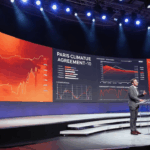






























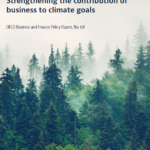







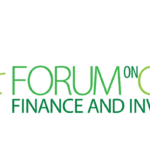

















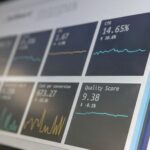



















































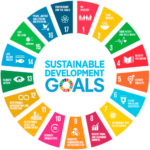




























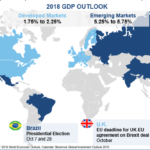





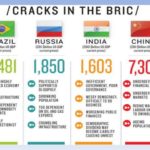




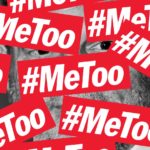


Pingback: Mettre à jour le couple rendement-risque à l’heure de l’ESG
Pingback: Agenda 2030 - Concrete Solutions, Useful Ingredients, Positive Attitude
I like what you guys are up too. Such smart work and reporting! Keep up the excellent works guys I have incorporated you guys to my blogroll. I think it will improve the value of my web site 🙂
I genuinely enjoy reading through on this internet site, it holds great articles. “Heavier-than-air flying machines are impossible.” by Lord Kelvin.